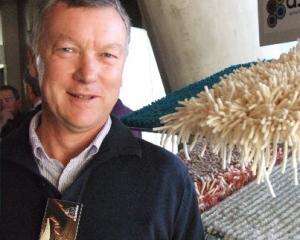For that to occur, farmers needed to ''invest and pin their colours to one mast'', the latest ANZ Agri Focus report said.
New Zealand's sheep flock was declining, the return on equity on sheep farming was poor, there was excess capacity across the processing sector, meat processors collectively suffered record losses last year, and the country's major markets in Europe were depressed.
''Put simply, the economics for sheep farming do not stack up,'' the report said.
While the bank liked the ''spirit'' of the red meat sector strategy report released in 2011, it questioned whether it went far enough and progress on some of the initiatives, nearly two years on, seemed slow.
''To be fair, it's been a struggle for some time. We simply seem to be closer to an inflection point where a tipping point drives necessary changes. Muddling through is not a strategy. More scale is required to help fill in the missing middle in New Zealand's food and beverage companies.''
The wool industry was in a worse state than the red meat sector and in need of rationalisation and consolidation, the report said.
While some plans had been suggested to promote rationalisation, new thinking and investment in product development and marketing, by and large none was fully functional, the report said.
The latest Federated Farmers confidence survey cited commodity and farm-gate prices as farmers' primary concerns and that reflected what Wools of New Zealand (Wonz) had been hearing from strong-wool growers throughout a capital-raising process, Wonz chairman Mark Shadbolt said.
It reinforced the need for strong-wool growers to invest in the sale and marketing of their product.
The Wonz capital raising offer, which closes on February 25, was a ''straightforward commercial proposition'' with the objective of raising capital to allow it to strengthen the company's brands and market connections to ''pull'' wool through the supply chain, benefiting shareholder growers, he said.
So far, 560 growers had taken up the offer of shares in the company, which represented a combined annual production of 12 million kg of wool.
The company's focus remained on achieving a target of $10 million raised and 20 million kg, Mr Shadbolt said.
Wool prices fell late last month after a strong start to the new year, driven mainly by demand from Chinese customers seeking quick delivery, the ANZ report said.
For the year-to-date, total wool exports were up 17%. China continued to take the lion's share at 47%. The share of exports going to Europe held its own, the report said.
Exports to the UK and Germany improved but Italian exports had dropped by 10%. China's share of fine wool exports increased to 70%.
The report said lamb schedules looked like they had bottomed out around $4.70kg but were not expected to improve substantially until the normal seasonal uplift in May-June. The 2013 outlook for beef prices continued to look solid.


